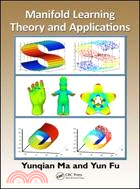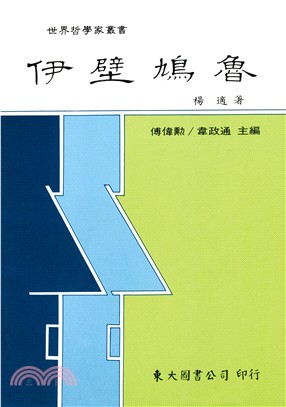定價
:NT$ 8775 元優惠價
:90 折 7898 元
若需訂購本書,請電洽客服 02-25006600[分機130、131]。
相關商品
商品簡介
作者簡介
目次
商品簡介
Trained to extract actionable information from large volumes of high-dimensional data, engineers and scientists often have trouble isolating meaningful low-dimensional structures hidden in their high-dimensional observations. Manifold learning, a groundbreaking technique designed to tackle these issues of dimensionality reduction, finds widespread application in machine learning, neural networks, pattern recognition, image processing, and computer vision.
Filling a void in the literature, Manifold Learning Theory and Applications incorporates state-of-the-art techniques in manifold learning with a solid theoretical and practical treatment of the subject. Comprehensive in its coverage, this pioneering work explores this novel modality from algorithm creation to successful implementation—offering examples of applications in medical, biometrics, multimedia, and computer vision. Emphasizing implementation, it highlights the various permutations of manifold learning in industry including manifold optimization, large scale manifold learning, semidefinite programming for embedding, manifold models for signal acquisition, compression and processing, and multi scale manifold.
Beginning with an introduction to manifold learning theories and applications, the book includes discussions on the relevance to nonlinear dimensionality reduction, clustering, graph-based subspace learning, spectral learning and embedding, extensions, and multi-manifold modeling. It synergizes cross-domain knowledge for interdisciplinary instructions, offers a rich set of specialized topics contributed by expert professionals and researchers from a variety of fields. Finally, the book discusses specific algorithms and methodologies using case studies to apply manifold learning for real-world problems.
Filling a void in the literature, Manifold Learning Theory and Applications incorporates state-of-the-art techniques in manifold learning with a solid theoretical and practical treatment of the subject. Comprehensive in its coverage, this pioneering work explores this novel modality from algorithm creation to successful implementation—offering examples of applications in medical, biometrics, multimedia, and computer vision. Emphasizing implementation, it highlights the various permutations of manifold learning in industry including manifold optimization, large scale manifold learning, semidefinite programming for embedding, manifold models for signal acquisition, compression and processing, and multi scale manifold.
Beginning with an introduction to manifold learning theories and applications, the book includes discussions on the relevance to nonlinear dimensionality reduction, clustering, graph-based subspace learning, spectral learning and embedding, extensions, and multi-manifold modeling. It synergizes cross-domain knowledge for interdisciplinary instructions, offers a rich set of specialized topics contributed by expert professionals and researchers from a variety of fields. Finally, the book discusses specific algorithms and methodologies using case studies to apply manifold learning for real-world problems.
作者簡介
About the Editors:
Yunqian Ma received his PhD in electrical engineering from the University of Minnesota at twin cities in 2003. He then joined Honeywell International Inc., where he is currently senior principal research scientist in the advanced technology lab at Honeywell Aerospace. He holds 12 U.S. patents and 38 patent applications. He has authored 50 publications, including 3 books. His research interest includes inertial navigation, integrated navigation, surveillance, signal and image processing, pattern recognition and computer vision, machine learning and neural networks. His research has been supported by internal funds and external contracts, such as AFRL, DARPA, HSARPA, and FAA. Dr. Ma received the International Neural Network Society (INNS) Young Investigator Award for outstanding contributions in the application of neural networks in 2006. He is currently associate editor of IEEE Transactions on Neural Networks, on the editorial board of the pattern recognition letters journal, and has served on the program committee of several international conferences. He also served on the panel of the National Science Foundation in the division of information and intelligent system and is a senior member of IEEE. Dr. Ma is included in Marquis Who is Who Engineering and Science.
Yun Fu received his B.Eng. in information engineering and M.Eng. in pattern recognition and intelligence systems, both from Xian Jiaotong University, China. His M.S. in statistics, and Ph.D. in electrical and computer engineering, were both earned at the University of Illinois at Urbana-Champaign. He joined BBN Technologies, Cambridge, MA, as a Scientist in 2008 and was a part-time lecturer with the Department of Computer Science, Tufts University, Medford, MA, in 2009. Since 2010, he has been an assistant professor with the Department of Computer Science and Engineering, SUNY at Buffalo. His current research interests include applied machine learning, human-centered computing, pattern recognition, intelligent vision system, and social media analysis. Dr. Fu is the recipient of the 2002 Rockwell Automation Master of Science Award, Edison Cups of the 2002 GE Fund Edison Cup Technology Innovation Competition, the 2003 Hewlett-Packard Silver Medal and Science Scholarship, the 2007 Chinese Government Award for Outstanding Self-Financed Students Abroad, the 2007 DoCoMo USA Labs Innovative Paper Award (IEEE International Conference on Image Processing 2007 Best Paper Award), the 2007-2008 Beckman Graduate Fellowship, the 2008 M. E. Van Valkenburg Graduate Research Award, the ITESOFT Best Paper Award of 2010 IAPR International Conferences on the Frontiers of Handwriting Recognition (ICFHR), and the 2010 Google Faculty Research Award. He is a lifetime member of Institute of Mathematical Statistics (IMS), senior member of IEEE, member of ACM and SPIE.
Yunqian Ma received his PhD in electrical engineering from the University of Minnesota at twin cities in 2003. He then joined Honeywell International Inc., where he is currently senior principal research scientist in the advanced technology lab at Honeywell Aerospace. He holds 12 U.S. patents and 38 patent applications. He has authored 50 publications, including 3 books. His research interest includes inertial navigation, integrated navigation, surveillance, signal and image processing, pattern recognition and computer vision, machine learning and neural networks. His research has been supported by internal funds and external contracts, such as AFRL, DARPA, HSARPA, and FAA. Dr. Ma received the International Neural Network Society (INNS) Young Investigator Award for outstanding contributions in the application of neural networks in 2006. He is currently associate editor of IEEE Transactions on Neural Networks, on the editorial board of the pattern recognition letters journal, and has served on the program committee of several international conferences. He also served on the panel of the National Science Foundation in the division of information and intelligent system and is a senior member of IEEE. Dr. Ma is included in Marquis Who is Who Engineering and Science.
Yun Fu received his B.Eng. in information engineering and M.Eng. in pattern recognition and intelligence systems, both from Xian Jiaotong University, China. His M.S. in statistics, and Ph.D. in electrical and computer engineering, were both earned at the University of Illinois at Urbana-Champaign. He joined BBN Technologies, Cambridge, MA, as a Scientist in 2008 and was a part-time lecturer with the Department of Computer Science, Tufts University, Medford, MA, in 2009. Since 2010, he has been an assistant professor with the Department of Computer Science and Engineering, SUNY at Buffalo. His current research interests include applied machine learning, human-centered computing, pattern recognition, intelligent vision system, and social media analysis. Dr. Fu is the recipient of the 2002 Rockwell Automation Master of Science Award, Edison Cups of the 2002 GE Fund Edison Cup Technology Innovation Competition, the 2003 Hewlett-Packard Silver Medal and Science Scholarship, the 2007 Chinese Government Award for Outstanding Self-Financed Students Abroad, the 2007 DoCoMo USA Labs Innovative Paper Award (IEEE International Conference on Image Processing 2007 Best Paper Award), the 2007-2008 Beckman Graduate Fellowship, the 2008 M. E. Van Valkenburg Graduate Research Award, the ITESOFT Best Paper Award of 2010 IAPR International Conferences on the Frontiers of Handwriting Recognition (ICFHR), and the 2010 Google Faculty Research Award. He is a lifetime member of Institute of Mathematical Statistics (IMS), senior member of IEEE, member of ACM and SPIE.
目次
Spectral Embedding Methods for Manifold Learning Introduction Spaces and Manifolds Data on ManifoldsLinear Manifold Learning Nonlinear Manifold Learning Summary Acknowledgment Robust Laplacian Eigenmaps Using Global Information Introduction Graph Laplacian Global Information of Manifold Laplacian Eigenmaps with Global Information Experiments Summary Bibliographical and Historical Remarks Density Preserving Maps Introduction The Existence of Density Preserving MapsDensity Estimation on Submanifolds Preserving the Estimated Density: The Optimization SummaryBibliographical and Historical Remarks Sample Complexity in Manifold LearningIntroduction Sample Complexity of Classification on a Manifold Learning Smooth Class Boundaries Sample Complexity of Testing the Manifold Hypothesis Connections and Related Work Sample Complexity of Empirical Risk Minimization Relating Bounded Curvature to Covering Number Class of Manifolds with a Bounded Covering Number Fat-Shattering Dimension and Random Projections Minimax Lower Bounds on the Sample Complexity Algorithmic Implications Summary Manifold Alignment Introduction Formalization and Analysis Variants of Manifold Alignment Application Examples Summary Bibliographical and Historical Remarks Acknowledgments Large-scale Manifold Learning Introduction Background Comparison of Sampling Methods Large-Scale Manifold Learning Summary Bibliography and Historical Remarks Metric and Heat Kernel Introduction
Theoretic BackgroundDiscrete Heat Kernel Heat Kernel Simplification Numerical Experiments Applications Summary Bibliographical and Historical Remarks Discrete Ricci Flow for Surface and 3-Manifold Introduction Theoretic Background Surface Ricci Flow 3-Manifold Ricci Flow ApplicationsSummary Bibliographical and Historical Remarks 2D and 3D Objects Morphing Using Manifold TechniquesIntroduction Interpolation on Euclidean spaces Generalization of Interpolation Algorithms on a Manifold M Interpolation on SO(m) Application: The Motion of a Rigid Object in Space Interpolation on Shape Manifold Examples of Fitting Curves on Shape ManifoldsSummary Learning Image Manifolds from Local FeaturesIntroduction Joint Feature-Spatial Embedding Solving the Out-Of-Sample ProblemFrom Feature Embedding to Image Embedding Applications Summary Bibliographical and Historical remarks Human Motion Analysis Applications of Manifold Learning Introduction Learning A Simple Motion Manifold Factorized Generative Models Generalized Style Factorization Solving for Multiple FactorsExamples Summary Bibliographical and Historical remarks
Theoretic BackgroundDiscrete Heat Kernel Heat Kernel Simplification Numerical Experiments Applications Summary Bibliographical and Historical Remarks Discrete Ricci Flow for Surface and 3-Manifold Introduction Theoretic Background Surface Ricci Flow 3-Manifold Ricci Flow ApplicationsSummary Bibliographical and Historical Remarks 2D and 3D Objects Morphing Using Manifold TechniquesIntroduction Interpolation on Euclidean spaces Generalization of Interpolation Algorithms on a Manifold M Interpolation on SO(m) Application: The Motion of a Rigid Object in Space Interpolation on Shape Manifold Examples of Fitting Curves on Shape ManifoldsSummary Learning Image Manifolds from Local FeaturesIntroduction Joint Feature-Spatial Embedding Solving the Out-Of-Sample ProblemFrom Feature Embedding to Image Embedding Applications Summary Bibliographical and Historical remarks Human Motion Analysis Applications of Manifold Learning Introduction Learning A Simple Motion Manifold Factorized Generative Models Generalized Style Factorization Solving for Multiple FactorsExamples Summary Bibliographical and Historical remarks
主題書展
更多
主題書展
更多書展本週66折
您曾經瀏覽過的商品
購物須知
外文書商品之書封,為出版社提供之樣本。實際出貨商品,以出版社所提供之現有版本為主。部份書籍,因出版社供應狀況特殊,匯率將依實際狀況做調整。
無庫存之商品,在您完成訂單程序之後,將以空運的方式為你下單調貨。為了縮短等待的時間,建議您將外文書與其他商品分開下單,以獲得最快的取貨速度,平均調貨時間為1~2個月。
為了保護您的權益,「三民網路書店」提供會員七日商品鑑賞期(收到商品為起始日)。
若要辦理退貨,請在商品鑑賞期內寄回,且商品必須是全新狀態與完整包裝(商品、附件、發票、隨貨贈品等)否則恕不接受退貨。























